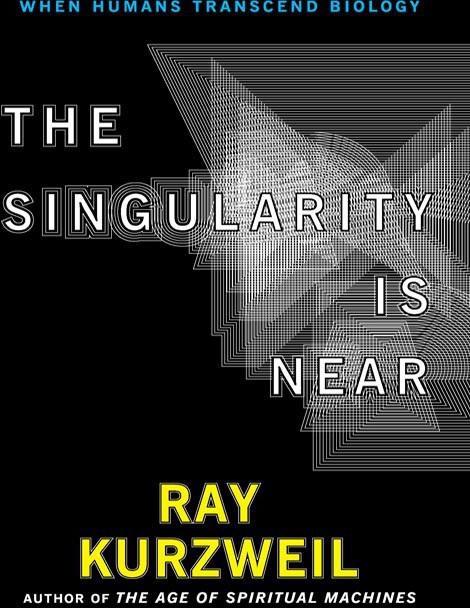

Most ebook files are in PDF format, so you can easily read them using various software such as Foxit Reader or directly on the Google Chrome browser.
Some ebook files are released by publishers in other formats such as .awz, .mobi, .epub, .fb2, etc. You may need to install specific software to read these formats on mobile/PC, such as Calibre.
Please read the tutorial at this link: https://ebookbell.com/faq
We offer FREE conversion to the popular formats you request; however, this may take some time. Therefore, right after payment, please email us, and we will try to provide the service as quickly as possible.
For some exceptional file formats or broken links (if any), please refrain from opening any disputes. Instead, email us first, and we will try to assist within a maximum of 6 hours.
EbookBell Team

4.1
50 reviewsStarred Review. Renowned inventor Kurzweil (_The Age of Spiritual Machines_) may be technology's most credibly hyperbolic optimist. Elsewhere he has argued that eliminating fat intake can prevent cancer; here, his quarry is the future of consciousness and intelligence. Humankind, it runs, is at the threshold of an epoch ("the singularity," a reference to the theoretical limitlessness of exponential expansion) that will see the merging of our biology with the staggering achievements of "GNR" (genetics, nanotechnology and robotics) to create a species of unrecognizably high intelligence, durability, comprehension, memory and so on. The word "unrecognizable" is not chosen lightly: wherever this is heading, it won't look like us. Kurzweil's argument is necessarily twofold: it's not enough to argue that there are virtually no constraints on our capacity; he must also convince readers that such developments are desirable. In essence, he conflates the wholesale transformation of the species with "immortality," for which read a repeal of human limit. In less capable hands, this phantasmagoria of speculative extrapolation, which incorporates a bewildering variety of charts, quotations, playful Socratic dialogues and sidebars, would be easier to dismiss. But Kurzweil is a true scientist—a large-minded one at that—and gives due space both to "the panoply of existential risks" as he sees them and the many presumed lines of attack others might bring to bear. What's arresting isn't the degree to which Kurzweil's heady and bracing vision fails to convince—given the scope of his projections, that's inevitable—but the degree to which it seems downright plausible. (Sept.)
Copyright © Reed Business Information, a division of Reed Elsevier Inc. All rights reserved.
Kurzweil is one of the world’s most respected thinkers and entrepreneurs. Yet the thesis he posits in Singularity is so singular that many readers will be astounded—and perhaps skeptical. Think Blade Runner or Being John Malkovich magnified trillion-fold. Even if one were to embrace his techno-optimism, which he backs up with fascinating details, Kurzweil leaves some important questions relating to politics, economics, and morality unanswered. If machines in our bodies can rebuild cells, for example, why couldn’t they be reengineered as weapons? Or think of singularity, notes the New York Times Book Review, as the "Manhattan Project model of pure science without ethical constraints." Kurzweil’s vision requires technology, which we continue to build. But it also requires mass acceptance and faith.
Copyright © 2004 Phillips & Nelson Media, Inc.